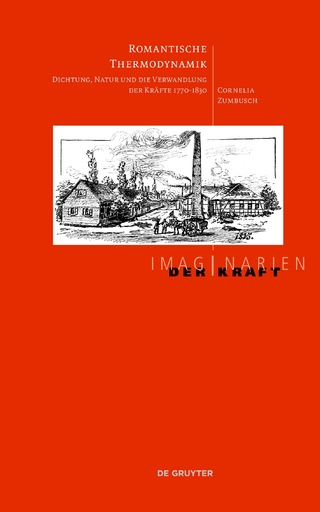
Botanical Culture and Popular Belief in Shakespeare's England
Cambridge University Press (Verlag)
978-1-009-39652-3 (ISBN)
- Noch nicht erschienen (ca. Oktober 2024)
- Versandkostenfrei innerhalb Deutschlands
- Auch auf Rechnung
- Verfügbarkeit in der Filiale vor Ort prüfen
- Artikel merken
The Shakespearean stage offered London playgoers a glimpse of the illiterate and rural plant cultures rapidly disappearing from their increasingly urban and sophisticated lives. The same cultures also circulated in popular texts offstage: bawdy tree ballads, botanical tales, almanacs and accounts of kitchen physic. Here Bonnie Lander Johnson argues that, while Shakespeare's plants offered audiences a nostalgic vision of childhood, domestic education and rural pastimes, this was in fact done with an ironic gesture that claimed for illiterate culture an intellectual relevance ignored by the learned and largely Protestant realm of print. Addressing a long-standing imbalance in early modern scholarship, she reveals how Shakespeare's plays – and the popular, low botanical beliefs they represent – engaged with questions usually deemed high, literate and elite: theological and liturgical controversies, the politics of state, England's role in Elizabethan naval conflict and the increasingly learned realm of medical authority.
Bonnie Lander Johnson is Fellow and Associate Professor at Downing College, Cambridge University. Her academic books include Chastity in Early Stuart Literature and Culture (Cambridge University Press, 2015), Blood Matters (2018) and The Cambridge Handbook of Literature and Plants (forthcoming). She also writes fiction and non-fiction about early modernity and our changing relationship to the natural world.
Introduction: theatre, nostalgia and the reformation of plants; Part I. Plants: Monarchs, signatures and the recuperation of the 'common': 1. Trees, kings, Christ: almanacs, ballads and the divinity of matter in Richard II; 2. Pansies, queens, midwives: fairy flowers, travellers' tales and domestic practice in a midsummer night's dream; Part II. Places: Domestic and civic: negotiating botanical cultures in the theatre: 3. The theatre as medical marketplace: poison, desire and cultures of diagnosis: Romeo and Juliet; 4. The theatre as bower: botanical tapestries, the passion of Christ and the book of nature in Cymbeline; Conclusion: the mulberry tree; Index.
| Erscheint lt. Verlag | 31.10.2024 |
|---|---|
| Zusatzinfo | Worked examples or Exercises |
| Verlagsort | Cambridge |
| Sprache | englisch |
| Themenwelt | Geisteswissenschaften ► Sprach- / Literaturwissenschaft ► Anglistik / Amerikanistik |
| Geisteswissenschaften ► Sprach- / Literaturwissenschaft ► Literaturgeschichte | |
| Geisteswissenschaften ► Sprach- / Literaturwissenschaft ► Literaturwissenschaft | |
| Naturwissenschaften ► Biologie ► Botanik | |
| ISBN-10 | 1-009-39652-8 / 1009396528 |
| ISBN-13 | 978-1-009-39652-3 / 9781009396523 |
| Zustand | Neuware |
| Haben Sie eine Frage zum Produkt? |
aus dem Bereich


